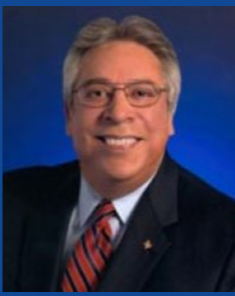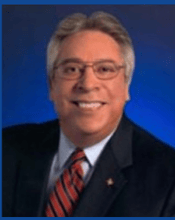
Peter Vargas, the City Manager for Allen, TX and a Risk Pool Trustee since 2011, recently announced his retirement from the City. Peter has demonstrated a lifelong commitment to public service, therefore we wanted get his thoughts on serving as a Trustee and his view on how the Pool serves the partnership.
Peter is a fascinating individual with a deep background in public service. Following a stint in the Peace Corps, Peter earned his master's degree in Public Administration from the University of Colorado. His professional career has taken him from Englewood and Arvada, Colorado to Laredo and Dallas before he landed in his current role with the city of Allen. Peter has been with Allen since 1999.
During Peter's time in Allen, the city has grown and changed considerably. Twenty years ago, there were 40,000 people in Allen; now there are nearly 115,000. When he arrived in the community, there were only 4 or 5 restaurants; now there are more than 240! Allen now boasts a senior center, a recreation center, three major retail centers, three unique shopping centers and many more schools. The community has always backed education in a big way, and there are currently 18 elementary schools, 3 middle schools, a freshman campus and a high school.
Let's learn a little more about Peter and how he views the Risk Pool and his role in the Pool:
- As a member of the board, can you tell us how the focus/direction of the board is determined?
Our board of trustees members come from all over the state. Everyone has a unique perspective. The board includes some elected officials as well as city officials (city managers). We have a good combination of leaders represented on the board. It lends itself to good discussions. - What made you want to serve on the board?
Same reason that I wanted to be a city manager: public service. I see the tremendous value that the Pool provides, and it really benefits the city of Allen. I'm proud to be a part of the Pool, not only as a participating member but also as a board member. - The Pool serves as a partnership — we hear that word a lot from your organization. Can you tell us what that means to you?
The Risk Pool really is an extension of our organization, the city of Allen. It provides a very stable and economic source of risk financing and loss-prevention services. The Pool is a critical component of our operations, like an extension of our organization. In the event that something catastrophic occurs, it is there for us. It’s like a co-op — members of the Pool community (cities and local governments) make up the policy formulation and set the premiums. It’s a true partnership where we work hand-in-hand with each other.
For example, the City of Allen has an ice-skating rink. We experienced some issues with the rink which, if not resolved, would have caused us to lose the facility. We worked up an innovative solution that included some new technology for an underground heating system. The Risk Pool worked closely with us, helped us research possible solutions and ultimately found the most economically feasible path to correct the situation. It came alongside us, worked with us — it was a partnership. - What are some of the noticeable differences between the Risk Pool and a private insurance carrier?
The TML Risk Pool is governed by the people who participate in the Pool, the members. The Board of Trustees for the Pool sets the program and the offerings. The members are ultimately in control of that program. The Risk Pool is a non-profit, while the private carriers are for-profit. Private carriers have a management structure that doesn’t include the client. If you have private insurance, you really don’t have control over the premiums. Those are the biggest differences. - The Pool offers loss-prevention training and courses. Does the Pool charge for these?
We don’t charge for these. It’s loss prevention and cyber security. It's important for our members to be aware of risks so they can develop training and procedures to help avoid the risks. It's better to gain the knowledge and not have to go through a painful experience. The partnership comes into focus because the training is provided free of charge. You can minimize occurrences where you would have to spend a lot of money and make a claim. The Risk Pool benefits from educating its members, and the cities also benefit from understanding some of the risks out there … before they happen. - What’s the philosophy of providing loss-prevention and training services for free?
It just makes good sense to train people to avoid losses. It's a benefit to the member and the Pool as a whole. It's positive for everyone involved. Business interruption and loss of productivity isn't good for any of our members, so we want to help mitigate that as much as possible. - What has been most satisfying to you in serving as a trustee?
Witnessing the Risk Pool's response to Hurricane Harvey. I saw firsthand how the Pool leaped into action. We had representatives on site within hours of the event. The Pool then stayed with those affected communities until they were able to come up with a program to put them back into operation. You have a Risk Pool, and you do prevention training and preparation, but when a massive event like Harvey happens, you get to see the policies and people spring into action. That was extremely satisfying to see and to be a part of.
Thank you for your time, Peter! We appreciate your perspective on the Pool and your service to the board. To learn more about your board members, visit the Risk Pool website. We'll share more discussions in the future with other people who serve the Pool and help to make it better for all members.


